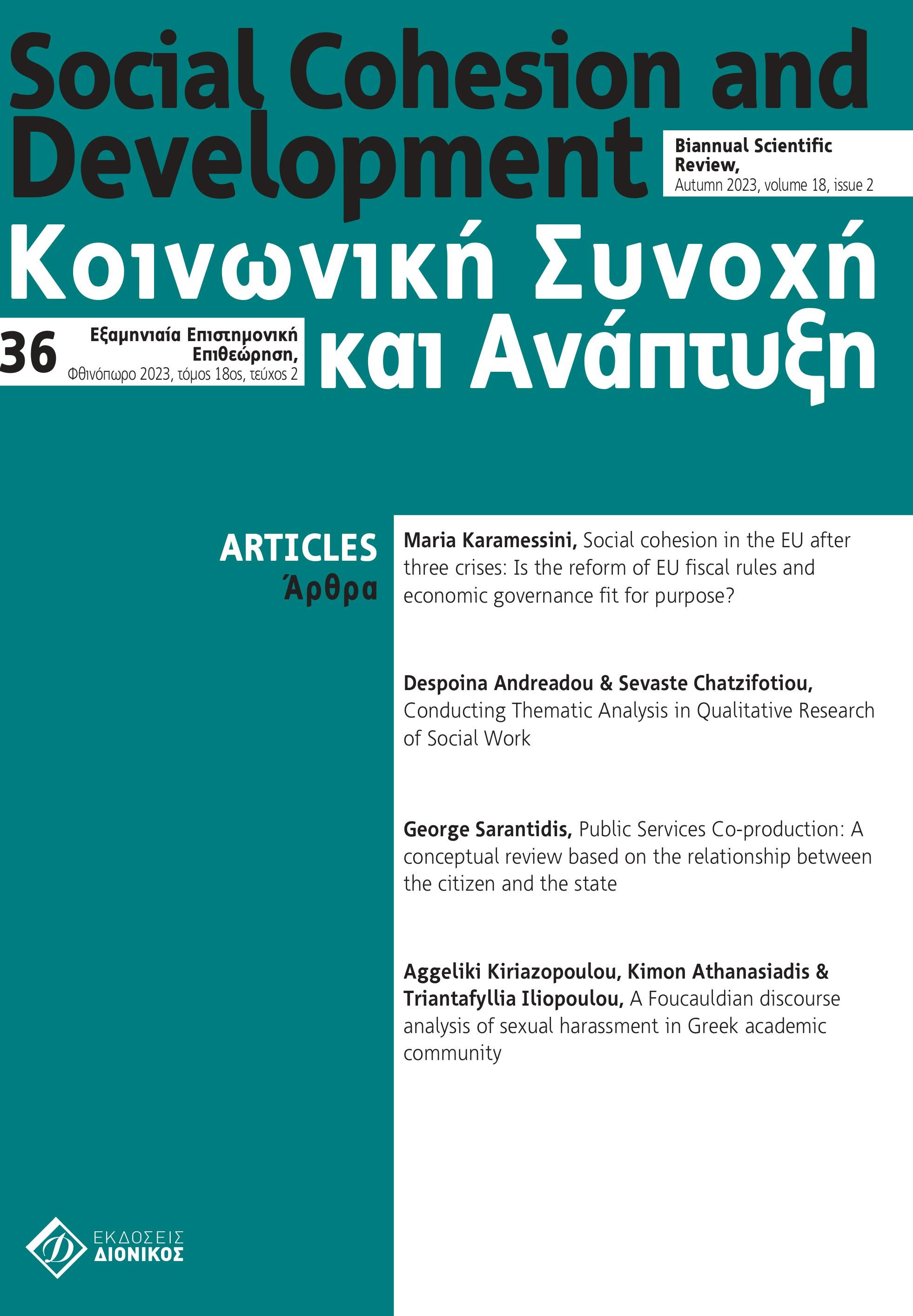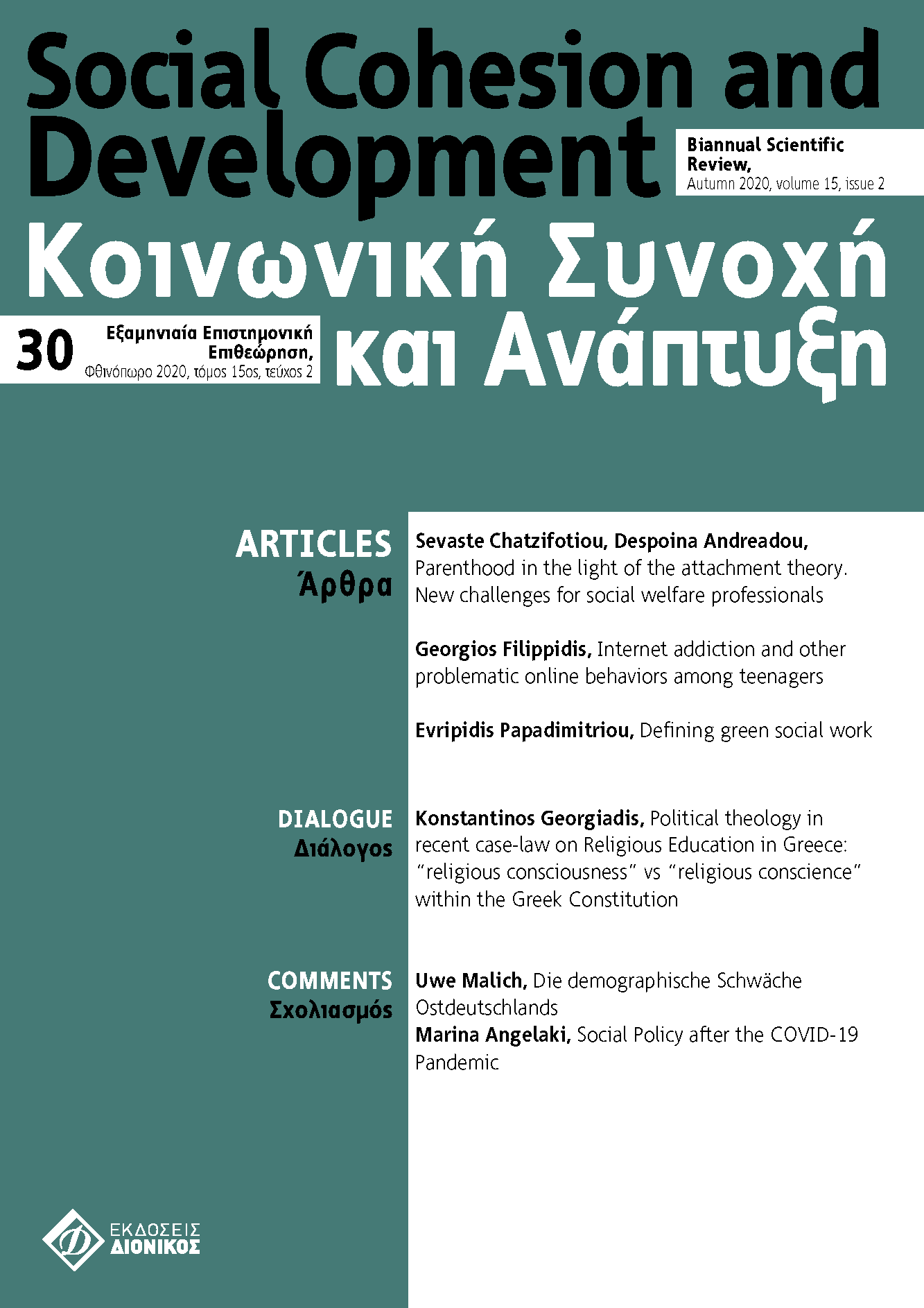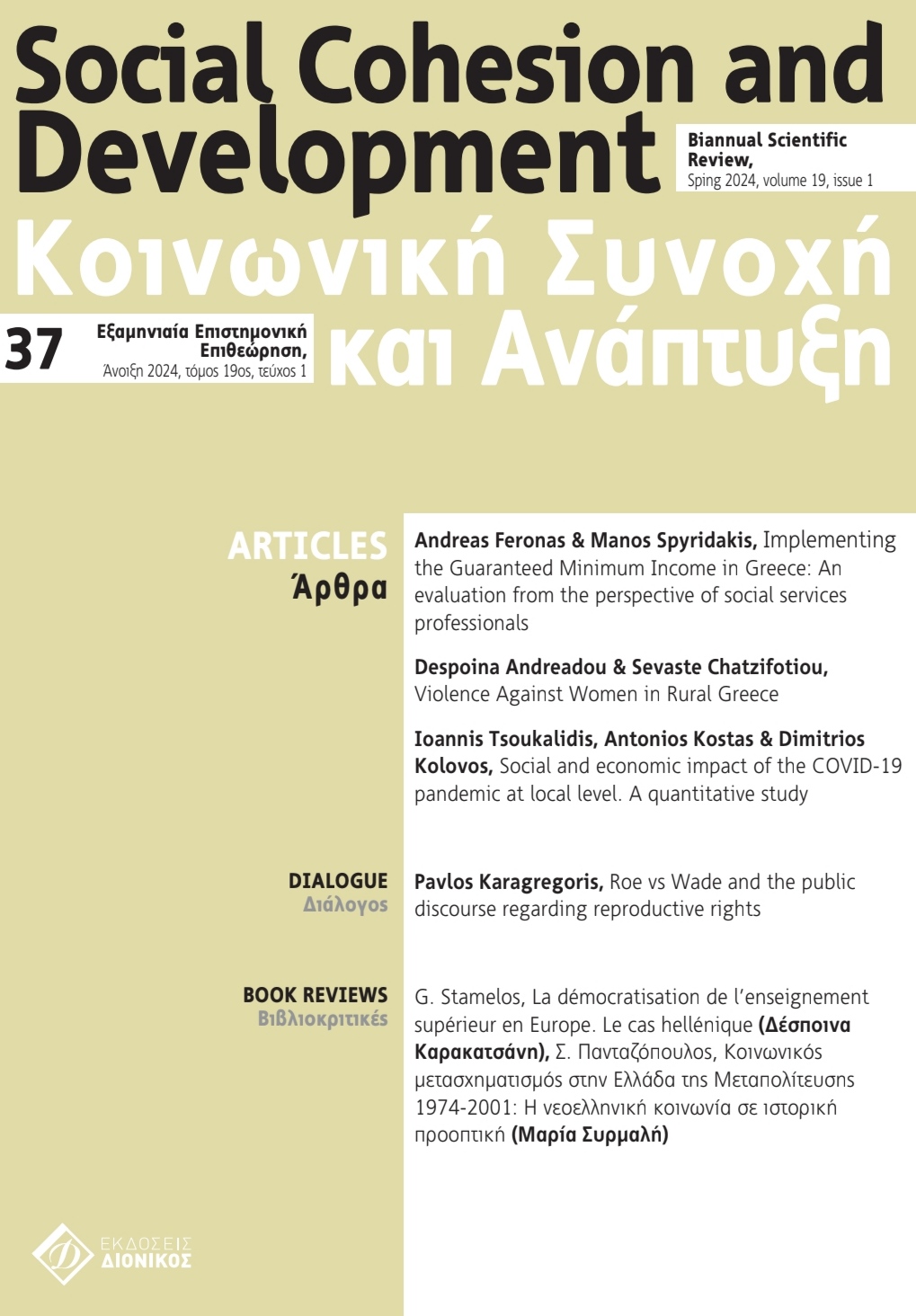Conducting Thematic Analysis in Qualitative Research οf Social Work
Περίληψη
Thematic analysis is one of the most commonly
used qualitative data analysis method in social
science research offering an accessible and
theoretically flexible approach for analyzing
qualitative data. This is a discussion paper
comprising an analytical overview of thematic
analysis, its conceptualization, characteristics
and applications. Furthermore, a social work
worked example using thematic analysis with
data from one of our own research projects
– domestic violence and parenthood - is
analytically discussed providing a step-by-step
guide for the analysis process. We conclude by
bringing more light to the importance of the
method and advocating it as most useful and
flexible for qualitative social work research.
Λεπτομέρειες άρθρου
- Πώς να δημιουργήσετε Αναφορές
-
Andreadou, D., & Chatzifotiou , S. (2023). Conducting Thematic Analysis in Qualitative Research οf Social Work . Κοινωνική Συνοχή και Ανάπτυξη, 18(2), 119–131. https://doi.org/10.12681/scad.37477
- Τεύχος
- Τόμ. 18 Αρ. 2 (2023): Νο 36
- Ενότητα
- Άρθρα

Αυτή η εργασία είναι αδειοδοτημένη υπό το CC Αναφορά Δημιουργού – Μη Εμπορική Χρήση – Παρόμοια Διανομή 4.0.
Οι συγγραφείς των άρθρων που δημοσιεύονται στην Κοινωνική Συνοχή και Ανάπτυξη διατηρούν τα δικαιώματα πνευματικής ιδιοκτησίας επί των άρθρων τους, δίνοντας στο περιοδικό το δικαίωμα της πρώτης δημοσίευσης. Άρθρα που δημοσιεύονται στην Κοινωνική Συνοχή διατίθενται με άδεια Creative Commons 4.0 και σύμφωνα με την άδεια μπορούν να χρησιμοποιούνται ελεύθερα, με αναφορά στο/στη συγγραφέα και στην πρώτη δημοσίευση για μη κερδοσκοπικούς σκοπούς και με δικαίωμα τροποποίησης μόνον με παρόμοια διανομή (αν αναμείξετε, τροποποιήσετε, ή δημιουργήσετε πάνω στο υλικό, πρέπει να διανείμετε τις δικές σας συνεισφορές υπό την ίδια άδεια όπως και το πρωτότυπο).




